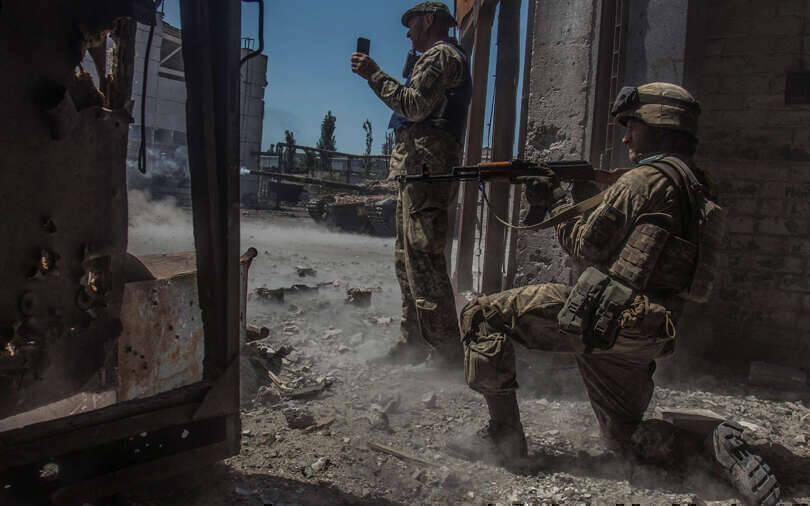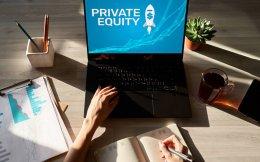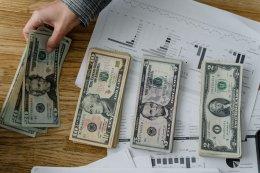Russia's invasion of Ukraine has exposed a gap in socially-minded investing – a hands-off approach to geopolitics and human rights.
Before Moscow sent troops into Ukraine on 24 February, Sberbank, a Kremlin-backed bank already the target of international sanctions, enjoyed higher ratings for environmental, social and governance (ESG) risks than some western lenders.
MSCI Inc and Sustainalytics improved their ESG scores for Russia's largest lender last year as recently as December, citing factors such as improved data privacy. S&P Global Inc also gave Sberbank a positive review late last year.
The ratings firms quickly changed course after the offensive, downgrading or suspending their scores on Sberbank and other Russian government-linked companies citing pressures such as their exposure to new western sanctions.
The U-turns have sparked calls from some investors for an overhaul of how geopolitics, sovereign governance and human rights are factored into ESG ratings.
A first step would be to include warning signs of war, allowing the selling of stocks while they could still be sold, said Dana D’Auria, co-chief investment officer for the asset management division of Envestnet Inc.
“Wouldn't it have been great to divest from Russian stocks before they became frozen?” D’Auria said. She and Envestnet declined to discuss specific holdings.
Simon MacMahon, head of ESG research for Sustainalytics, said the invasion of Ukraine was "a black swan event" because of its low probability and high impact, and said that investors were aware of the risks of investing in the region.
"To suggest that investors were relying solely on ESG ratings to tell them that investments in Russia, (Belarus) and Ukraine were increasingly high risk is nonsensical," he said.
Still, Morningstar Inc-owned Sustainalytics is revamping its methodology to capture companies' exposure to unpredictable, unmanageable events.
Its new “Systemic Event Indicators” aims to capture any development it defines as “a sea change event that is somehow unpredictable in nature and that affects larger groups of companies at the same time and across a multitude of ESG issues."
Sustainalytics gave Sberbank a 21.47 score pre-invasion, better than scores given to JPMorgan and Deutsche Bank at the time. The Russian bank’s risk rating was then raised to its current "high risk" rating of 33.4, incorporating the new systemic indicators.
MSCI, which in December upgraded Sberbank to an "A" rating from "BB," said that it regularly reviewed its ratings methodology and that it had put a ceiling on Russian company ratings and removed them from its indexes.
MSCI spokesperson Melanie Blanco said that across all markets covered by MSCI, state-owned enterprises on average have lower ESG ratings, typically due to weaker corporate governance and higher corruption risk.
A spokesperson for S&P said it continued to review its coverage and methodology for affected companies in Russia but declined to discuss ratings in detail.
AUTOCRACY RISK
Funds that exclude or are underweight companies from countries with weak human rights records are a tiny fraction of the tens of trillions of dollars held in ESG investments.
MSCI Managing Director Meggin Thwing Eastman told Reuters that while Russia's invasion was forcing "a revisiting of a lot of people's thinking" in how they assess geopolitics many emerging markets (EM) investors still want exposure to countries despite their sometimes-poor human rights records.
"If what you want to do is buy EM, that's part of what you're buying into," she said.
But demand for strategies with a human rights screen is growing.
Julie Cane, CEO of Democracy Investments, investment adviser to the $5 million Democracy International Fund, said it had a rush of new interest and inflows since Russia’s invasion. It attracted $3 million in net new deposits this year, including $1 million in each of February, March and April, according to Lipper data.
The fund reduces the weighting of some of its holdings if a company's home country receives a low score in The Economist magazine's Democracy Index.
That still leaves it with exposure to state-connected businesses, including in China, which has come under increasing international pressure over human rights in the Xinjiang region.
Cane said it was better to keep such stakes, however diminished, "to put pressure on authoritarians to become better citizens of the world."
China's foreign ministry and the State Council Information Office did not respond to requests for comment.
The United States says China is committing genocide against Uyghur Muslims in the Xinjiang region. Beijing has denied all accusations of abuse.
Another fund, the $220 million Freedom 100 Emerging Markets ETF, takes a harder line. It excludes companies from countries that score low on a measure of "human freedom" kept by the Cato Institute and the Fraser Institute.
That makes it a rarity among EM funds because it omits Russian and Chinese holdings. Fund manager Perth Tolle said Russia’s invasion helped attract new money. Lipper data shows it has taken in $117 million so far this year.
“The invasion seems to have made investors more aware of autocracy risk than ever before, and they see that freedom works as a leading indicator,” Tolle said.
Moscow calls its invasion a "special military operation" to protect Russian speakers from Ukrainians intent on taking Kyiv into NATO, a move Russia says it cannot accept. The West and Ukraine say Russia is waging an unjustified war of aggression.
RUSSIAN EXPOSURE
To be sure, most ESG-focused funds had little or no exposure to Russia. Close to $320 million in securities linked to Russia’s government, including via sovereign debt and shares in Sberbank and other state-backed companies, was held across 75 ESG labelled U.S. and European funds as of March according to corporate accountability NGO Inclusive Development International.
Some $100 billion is held in passively managed funds linked to sustainable indexes compiled by MSCI and others according to Sustainable Research and Analysis.
Some ESG raters had flagged the sanctioning of government-connected Russian firms pre-invasion, but those assessments had a limited impact. In a Nov. 29 note a unit of S&P credited Sberbank for conducting risk assessments and strategic planning.
The note cautioned against corruption and centralized power in Russia, but said "the inclusion of the bank on international sanctions lists currently does not affect the effectiveness of its corporate management and does not create any immediate financial or operational risks."
Despite being put on 2014 U.S. and European Union sanctions lists after Russia's annexation of Crimea, Sberbank grew in the following seven years, maintaining a sizeable presence in some European markets and reporting a 74% jump in net profits to a record 1.24 trillion roubles for 2021.
Sberbank said in a statement that its "impressive progress" on ESG ratings in 2021 reflected "internal ESG transformation efforts as well as its sustainability leadership in Russia." It did not respond to specific questions about the ratings.







